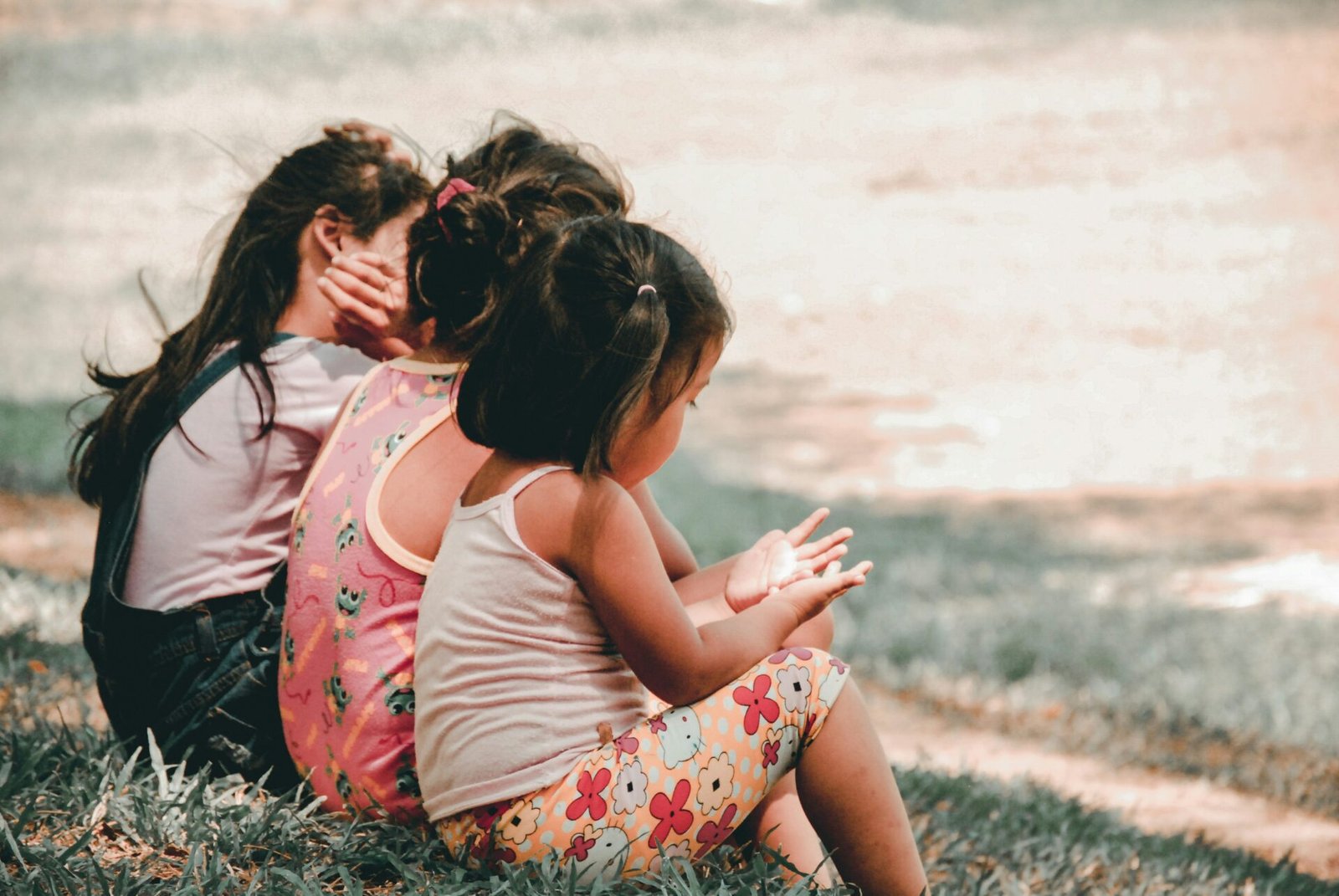The book Hunt, Gather, Parent by Michaeleen Doucleff delves into her own anthropological explorations among various civilizations, including the Inuit, Māori, Hunza, Maasai, and Gabonese tribes. In the “pressure cooker” of Western nuclear families, much attention is given to a child’s independence, often demanded in an imperative manner. In contrast, in the aforementioned tribes, children grow up in an environment of greater freedom, less stress, and more autonomy—thus developing not only independence but also a natural sense of responsibility, both for themselves and for the community.
The Power of Modeling
Once, I asked my son to be well-behaved as a birthday gift for me. He said, “Alright, just don’t overdo it.” Children don’t do what we tell them to do; children do what we model for them—let’s never forget that.
“Bedtime routines, bedtime routines, bedtime routines!” I hear from every direction, from my girlfriends to my pediatrician. But if bedtime routines work so well, then why does my home sound like a war zone at eight p.m. each night? And why has a book called Go the F**k to Sleep sold millions of copies in the past decade or so?
Michaeleen Doucleff – Hunt, Gather, Parent
In the book Hunt, Gather, Parent, Michaeleen Doucleff shares how she unknowingly taught her child to throw “parties” at bedtime instead of sleeping, and how she consciously taught her child to go to bed independently. Every evening, battling to get her child to go to sleep immediately—accompanied by a series of commands on what to do and how quickly, with yelling “Just calm down already!”—Michaeleen inadvertently created a bedtime tradition of chaos. Her child perceived this as normal and even as a game.
Amazed to observe how children in the Hadza tribe go to bed on their own, Michaeleen realized her mistake. First, her child was learning to force herself to sleep, conforming to the rhythms of the Western world rather than her own biological rhythms (though, admittedly, not much can be done when daycare starts at 8). Second, Michaeleen herself was modeling such behavior for her child by creating an environment of resistance and heightened activity. Michaeleen made adjustments, and within ten days, her daughter bid everyone goodnight and went to bed on her own.
How did she achieve this? When bedtime approached, Michaeleen simply slowed down, yawned, demonstratively went to brush her teeth, and then sat down with a book near her daughter’s bed, ready for a bedtime story. This is just one example of modeling behavior.
Practice, Modeling, and Acknowledgment
In general, Doucleff identifies three key components necessary to sustain the spirit of productive activity: practice, modeling, and acknowledgment.
Acknowledgment: Embrace children’s contributions, appreciate their ideas, and recognize the value of their presence. The author advises marking acceptable behavior as a sign of growing up, and unacceptable behavior as a sign of being a baby, because children deeply desire to be adults!
Practice: Give children plenty of opportunities to observe, participate, and carry out small tasks within their abilities.
Modeling: Allow children to feel part of the process and the community. Act in the way you expect them to behave. One of the most striking things the author observed was the ability of tribal people to sit quietly with their children and simply be. So, it’s possible!
Children don’t like control, but they love cooperation
It’s not my job to entertain the children. It’s their job to be part of the team.
Michaeleen Doucleff – Hunt, Gather, Parent
Children, like adults, do not like being controlled, so domination does not work. By forcing a child to do something or not do something, parents only provoke feelings of separation and resistance.
In Western culture, the process of upbringing often resembles a tug-of-war: who controls whom more—parents controlling the child or the child controlling the parents. In other words, we, as parents, not only act within a culture of domination but also promote it to the next generation. I touched on this topic earlier in an article about how to “train” a child to do chores. To summarize—children love to help, naturally and without coercion; we just need to give them manageable tasks while leaving the freedom to say “no.” The same article also discusses the issue of nuclear families: a limited circle of people is unnatural and creates difficulties for both the child and the parents.
However, no matter how many people are around, a sense of community is crucial for a child. In fact, Doucleff came up with a broader acronym to describe the relationship between parents and children—TEAM (togetherness, encouragement, autonomy, and minimal interference).
Togetherness is easy. It’s relaxing. It flows. It’s what happens when we all stop trying to control each other’s actions and simply let each other be.
Michaeleen Doucleff – Hunt, Gather, Parent
In Western culture, partly due to the dangers of the environment we live in, we’ve become accustomed to over-controlling situations: “Don’t go there,” “Don’t do that,” “Do it this way, not that way.” Children are left with very little space for freedom and autonomy, and everyone ends up frustrated. According to Michaeleen, the situation is even worse in American culture than in ours: she advises practicing giving a child no more than three instructions per hour. No more than three?! I might give three in a day, not more! We don’t just tell children what and how to do; we even tell them what to say (What should you say? Say thaaaank you). Just imagine how annoying this must be, especially since children learn by mimicking. So, what exactly is the child learning in this case? To be annoying. And then what? Yes, they annoy you in return. Oh dear.
The less you demand of a child’s attention—through orders, directions, and corrections—the less the child will demand your attention.
Michaeleen Doucleff – Hunt, Gather, Parent
Why yelling is never the solution
First and foremost, it’s the same reason: by yelling, we teach the child to yell. The second point is that we teach the child to only listen when we yell.
Laura Markham, a clinical psychologist who authored the book Peaceful Parent, Happy Kids. I ask her if yelling at kids has a negative impact, and she responds in an uncanny echo of Sidonie. “When we yell at children, we are training them not to listen,” she tells me. “A lot of times, parents will say, ‘But he won’t listen until I raise my voice,’ and I say, ‘Okay. Raise your voice to get him to listen and then you’ll always have to raise your voice.’ ”
Michaeleen Doucleff – Hunt, Gather, Parent
If a child doesn’t listen, doesn’t hear, doesn’t obey, behaves poorly, etc., the conclusion is: they just haven’t developed the necessary skill yet. They simply can’t do it yet. Can this be accelerated with yelling? Maybe, but at what cost. Yelling might grab their attention and make them act, but it won’t build the skill or help the child understand the connections; instead, it’s more likely to scare and confuse them. And it will teach them to repeat the behavior. Support and modeling give much better results for both parties.
A specific approach in the case of unacceptable behavior, often known as the “mom look,” is much more effective. First, it requires less energy. Second, it doesn’t leave room for argument: you can’t argue or haggle with a look.
A few more tips that Michaeleen learned while studying family life in tribes:
- Turn orders, criticism, and feedback into questions.
- Instead of simply telling them to stop whining, give them a task.
- Replace anger with awe. (This refers to cases when the child is angry, and parents redirect their attention to something like a beautiful sunset.)
- When you minimize conversation, you spend minimal energy.
- Use responsibilities as rewards. Remember, working alongside an adult is a privilege for a child. If the child truly wants to join in with adult tasks or activities, use their desire to teach them adult behavior.
- Use stories. We all learn through storytelling. Instead of saying “don’t do that,” you can use a fictional or real story about what happened to someone when they did something similar.
- If you think about it, praise is a way of controlling the child.
In general, hunter-gatherer communities greatly value a person’s right to make their own decisions—that is, their right to self-governance. They believe it’s harmful to control another person.
Michaeleen Doucleff – Hunt, Gather, Parent
Overall, the most valuable thought for me in this book concerns autonomy. Modern Western upbringing tends to focus more on independence: go and play. But independence is a broken connection. Our lives are already segregated enough: children go to school, parents go to work, parents cook – children are in front of screens. In this model, children owe nothing to anyone, have no obligations or sense of responsibility, and, at the same time, lack the most important thing – a sense of belonging. It seems that this is exactly how independent, irresponsible adults appear.
The other great antropological book on upbringing is Jean Liedloff – Continuum Concept.



